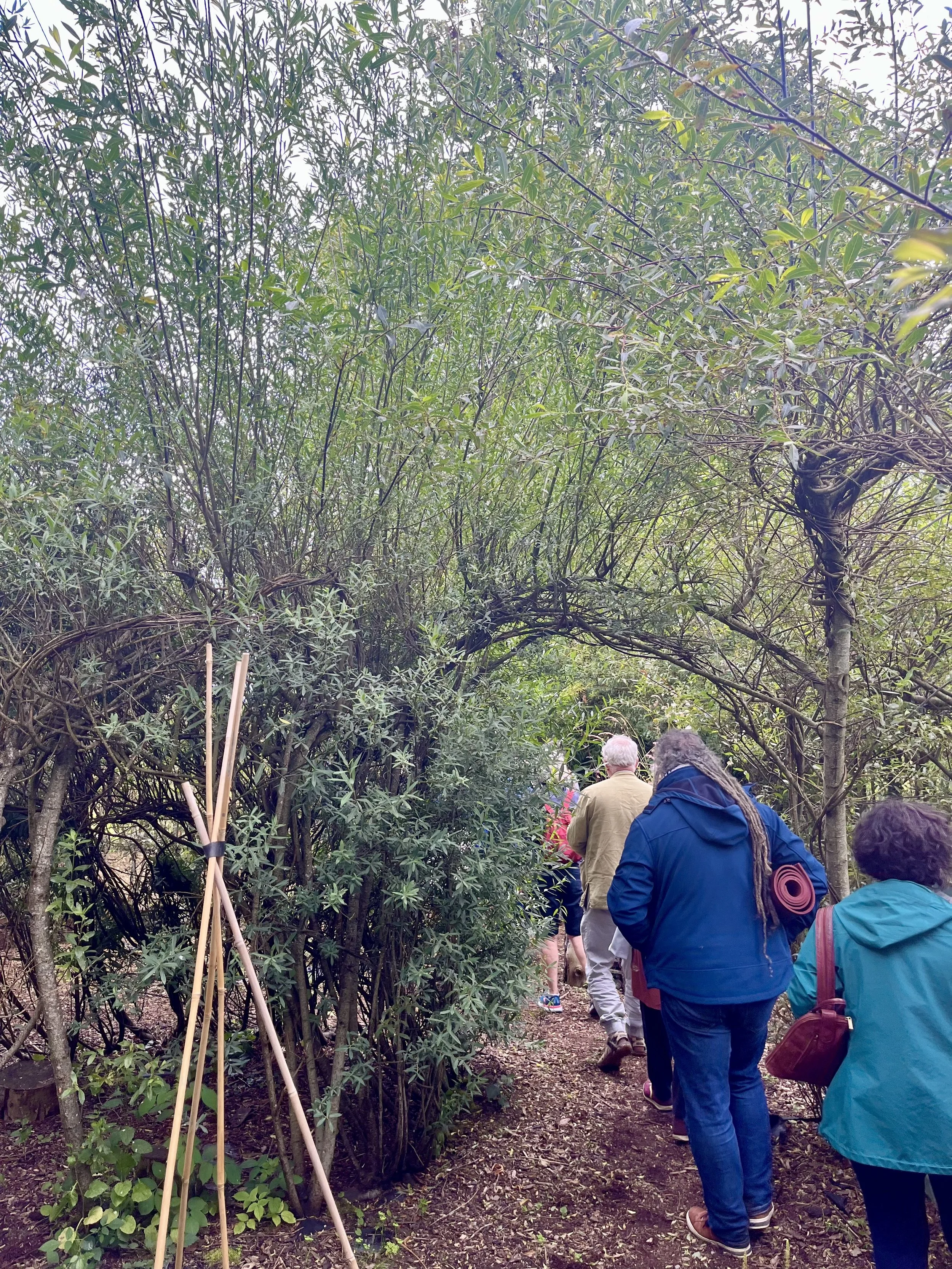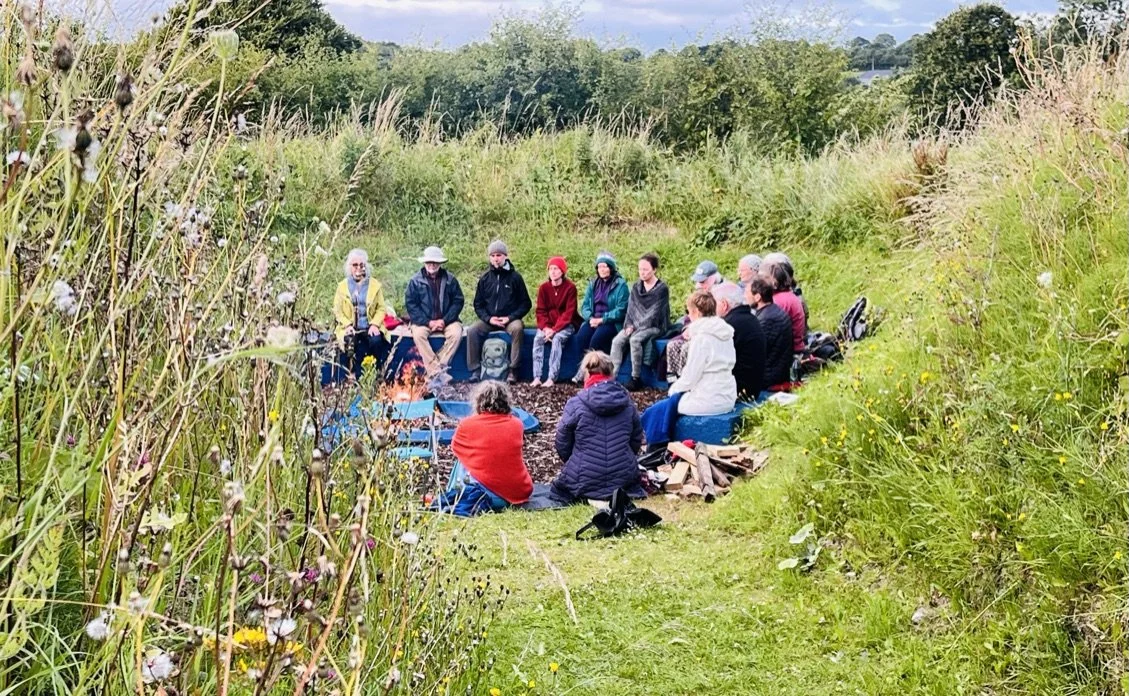Thoughts from Cloughjordan: The EcoSattva Path
This summer, I spent time at the Cloughjordan Ecovillage in County Tipperary, Ireland. It’s a small community made up of people who are trying to live in a way that’s gentler on the planet by growing their food, using renewable energy, and finding ways to live in connection with the land and with each other. There’s a quiet rhythm to the village that you can feel as soon as you arrive. The kind of pace that makes you slow down without realizing it.
At the heart of the community is the belief that a lot of what’s wrong with the world comes from disconnection. Disconnection from the land. From our food. From each other. And even from ourselves. The people I met there are trying to reconnect, to build something rooted and sustainable in a time when so much feels fragile.
While I was there, I took part in an Ecodharma retreat led by Professor David Loy, a Zen teacher and the author of Ecodharma: Buddhist Teachings for the Ecological Crisis. The retreat focused on the connection between spiritual practice and ecological living, on how meditation and mindfulness can support the work of environmental action. We spent time sitting in stillness, walking silently through the gardens, and reflecting on what it means to be in relationship with a planet in pain.
He introduced us to the EcoSattva path, a kind of engaged Buddhism that combines inner work with outer action. It’s a path that recognizes the pain of the climate crisis but also encourages us to respond with compassion rather than despair. I was struck by the idea that spiritual practice and ecological commitment aren’t two separate things; they actually feed each other. David Loy writes, “Combining meditation and activism enables deep engagement without burnout” (2020). I’ve spent so much of my activist life focused on the outer work, organizing and advocating, but often at the cost of my own mental well-being. The EcoSattva path feels like a kind of invitation, a way of doing the work that doesn’t drain me, but actually builds me back up.
I think that this balance of inner and outer work is more important than ever, especially in light of the growing sense of ecological grief that so many people are carrying right now. It's not just the environmental devastation itself; it’s the emotional weight of witnessing it unfold day after day, often feeling powerless to stop it. I know a lot of people in the climate space wrestle with the same question: How do we keep going when it all feels way too heavy?
What I experienced at Cloughjordan was the idea that grief, when shared with others and approached with mindfulness, can actually open a door. It’s not something to push away or rush through, but something we can learn to move with. Ecodharma doesn’t promise to fix the grief, it offers a way to hold it with care. It reminds us that grief isn’t a sign of weakness. It’s proof that we’re paying attention and that we are deeply connected to the world around us. And it’s that connection that can shift us from feeling stuck to taking meaningful action. Not just frantic reacting, but slow, thoughtful, long-term action.
Being in Cloughjordan, around people who are genuinely trying to live in right relationship with the Earth and with each other, gave me a kind of hope I hadn’t felt in a long time. The Ecovillage isn’t perfect, but it’s a real and ongoing experiment in a different way of living. It reminded me that community and connection with the land aren’t just things we need to feel better emotionally, they’re actually crucial tools for resilience.
This all ties back to the EcoSattva path, the idea that spiritual practice and environmental action aren’t separate, but actually support each other. It offers a way to hold the grief we feel and turn it into action we can sustain, without burning out or shutting down. It’s a reminder that when we ground ourselves in mindfulness and community, we’re more able to move through the heaviness and keep showing up with care and clarity.
I want to share the EcoSattva vows that I took during my time at Cloughjordan. The vows were created by Joanna Macy and members of the One Earth Sangha, but have been given to all of us to use in whatever way feels right.
The EcoSattva Vows:
Based on my love of the world and understanding of deep interdependence of all things,
I vow
To live in Earth more lightly and less violently in the food, products and energy I consume.
To commit myself daily to the healing of the world and the welfare of all beings; to discern and replace human systems of oppression and harm.
To invite personal discomfort as an opportunity to share in the challenge of our collective liberation.
To draw inspiration, strength and guidance from the living Earth, ancestors and the future generations, as well as siblings of all species.
To help others in their work for the world and to ask for help when I feel the need.
To pursue a daily spiritual practice that clarifies my mind, strengthens my heart and supports me in observing these vows.
Resources and Further Reading:
https://oneearthsangha.org/programs/ecosattva-training/vows/
https://www.lionsroar.com/how-to-be-an-ecosattva/
https://oneearthsangha.org/articles/guideposts-on-the-ecosattva-path/




